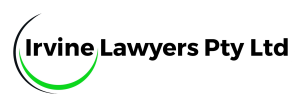Selling your residential property is likely to be one of the most significant financial transactions you’ll ever make.
The sale of a property is managed by conveyancing laws that can be overwhelming and complex for someone who has not had experience in dealing with them.
Appointing a suitable professional at an early stage is important to ensure you understand your obligations as a seller, and the various provisions of the contract for sale and other associated documents.
I want to sell my property, what is the first thing I should do?
Most vendors (sellers) will appoint a real estate agent to sell their property on their behalf.
The conduct of real estate agents is regulated by legislation, and they have certain obligations that they must fulfil. Certain information must be communicated to you in writing before an agent is able to act on your behalf. It is important to note that things such as advertising costs are usually negotiable with the estate agent. You may also be able to negotiate changes to the real estate agreement offered.
There are many functions an agent can undertake on your behalf, such as marketing the property to attract prospective buyers, organising house inspections and open houses and arranging auctions.
Your rights and obligations when selling your home
Conveyancing involves the transfer of real estate ownership from one person to another. Small mistakes or oversights during the conveyancing process can lead to significant problems in the future.
Your best chance of ensuring that no mistakes are made during the sale of your home is to seek advice from an experienced professional and to ensure that you have a compliant written contract in place before marketing the property.
A conveyancer or property lawyer will ensure that you are aware of all conveyancing requirements in Victoria and can assist you with understanding your rights and obligations regarding any disclosure requirements and the section 32 vendor statement.
What steps do I need to take if I want to sell my property?
Provide a section 32 vendor statement to an intending purchaser before a contract of sale is signed
The vendor statement must include all relevant details which may affect the state of the property, such as certificate of title search, council planning and information certificates, contaminated land, amongst other things. This information helps the buyer make an informed decision as to whether they want to proceed with the purchase of your property. It is an essential part of the conveyancing process and discloses certain information that isn’t on hand during an inspection.
Failing to include vital information in a vendor statement may have serious legal ramifications.
Have a Contract of sale drafted and on hand for potential buyers
There are two types of contract of sale for the sale of residential property in Victoria, a contract of sale, and an auction contract. You need to be sure you understand all the clauses in your contract of sale.
The contract of sale should include things such as:
details of the property
vendor and purchaser’s names
details of their respective lawyer/conveyancer
the agreed purchase price
special conditions
The contract of sale becomes legally binding once the vendor and purchaser have both signed it. The purchaser will need to pay a deposit of 10% of the purchase price, which may be negotiable by mutual agreement. The deposit is payable to the vendor (or agent) on signing the contract of sale.
If for whatever reason the purchaser is in default of the contract of sale outside of the cooling off period, you may be entitled to terminate the contract of sale and keep the deposit.
Cooling off period
Usually, a cooling-off period of three business days applies to private sales of residential and small rural property sales in Victoria. The cooling-off period is for the benefit of the purchaser only.
There are a few situations in which the cooling-off period does not apply, including if the property is sold at a public auction.
Generally, the only consequence for cancelling the purchase during the cooling off period, is that $100 or 0.2% of the purchase price (whichever is greater) will be deducted from the purchaser’s deposit.
What happens after my property is sold?
The period between exchange and settlement of a property is usually between thirty to ninety days, however, you can try to negotiate a longer or shorter period if required.
During settlement, all rates and other recurrent outgoings regarding the property are adjusted between the purchaser and vendor and the balance of the purchase price is paid in exchange for the transfer documents and the certificate of title.
When the change of ownership occurs, your lawyer or conveyancer will notify all relevant authorities on your behalf.
Conclusion
It is clear from the above that selling your residential property can be a complicated task!
If a vendor does not meet all the necessary requirements of a contract of sale and other relevant legal documentation, they are possibly exposing themselves to legal action down the track.
If you or someone you know wants more information or needs help or advice, please contact us on (03) 9422 5439 or email [email protected].

